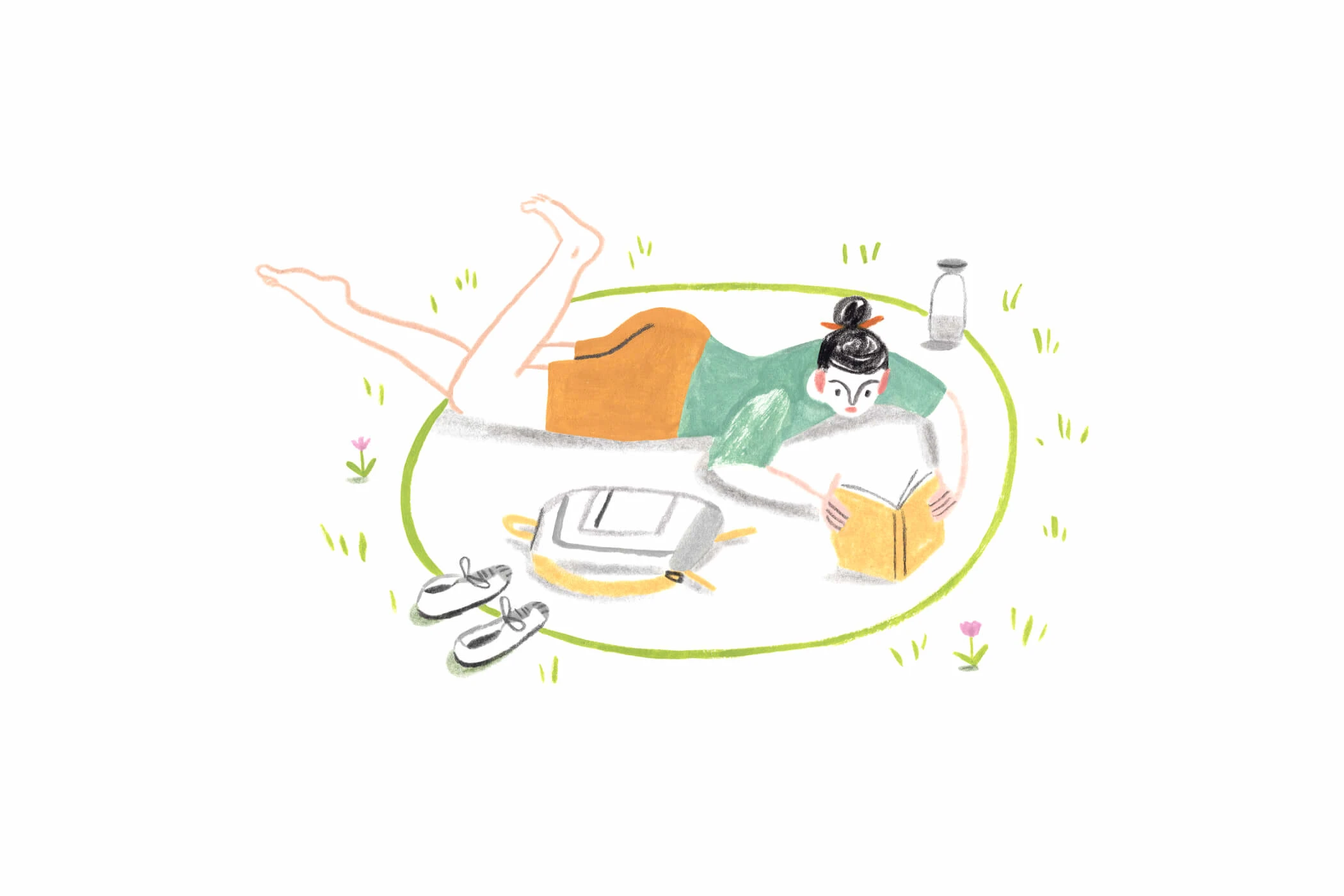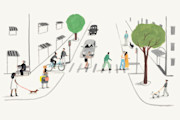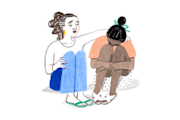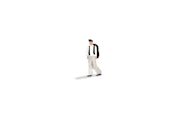In 2008, I was 37 years old. I was a successful business owner. A newlywed. And at the end of that year, I received my first introduction to social media. Facebook, to be precise.
My husband had joined and jumped in with both feet, quickly syncing up with old friends from high school, college, and beyond. But I was resistant. Why did I need that? I already stayed in touch with the people I wanted to have in my life. And I had zero desire to put my private life out into the ether, enabling strangers to monitor my every move.
After a few weeks, I gave in. I created an account, and began excitedly searching for people I hadn’t thought about—let alone seen—in years.
This decision was one that I’d come to regret.
Social media then and now
That year, the blog platform Blogger was the number one social media site with an estimated 222 million users; but coming in at a close second was Facebook, which claimed to have more than 140 million users.
Today, that number is 1.73 billion, according to Facebook. With a world population of 7.8 billion and counting, that’s almost a third of everyone on earth.
Across much of the world, it’s difficult to find someone who doesn’t have at least a general understanding of what social media is, and most of those have stories of how social media has made an impact on their lives or those of their loved ones.
Like most people, in 2020 my use of social media looks very different than it did twelve years ago.
When I first started using Facebook, I couldn’t check it on my phone, so when I logged on it was almost like a treat. Now, I’m probably on some form of social media—Facebook, Instagram, and YouTube are my drugs of choice—in excess of five, six hours a day. Sometimes more.
How do I know this?
I have two different apps on my phone that monitor my use of social media and report it to me. It’s….a lot.
What is social media addiction?
Clinicians and researchers don't always agree about whether the term "addiction" is appropriate, but they generally agree that social media consumption can become problematic at high levels.
To the extent that it is one, social media addiction is a behavioral addiction. That is, it is not a physical addiction.
Substances like opiods actually change the physical makeup of the brain as an addiction advances; hence the moniker “physical addiction.” (There is growing research, however, that suggests that behavioral addictions like gambling may have comparable effects on the circuitry of the brain. But the study of social media addiction hasn’t progressed that far yet.)

Social media addiction is characterized as a state of being “overly concerned about social media, driven by an uncontrollable urge to log on to or use social media, and devoting so much time and effort to social media that it impairs other important life areas.”
A recent study from the University of Pennsylvania took a deeper look at how excessive social media use triggers anxiety in the form of FOMO (fear of missing out).
The study included one group that limited their use of social media to 30 minutes a day, while the control group continued to use Snapchat, Instagram, and Facebook as they normally would.
After just three short weeks, researchers found that the participants who only used social media for 30 minutes a day felt less anxiety and depression.
The explanation, according to Psychologist Melissa Hunt, who led the study, was simple: “...the reason for feeling depressed after spending too much time on social networks boils down to comparison. When viewing someone else’s curated life online, it’s easy to see their perfect pictures and think their lives are better than yours.”
The impact on teens
According to a recent study, the rise in loneliness among teens may be attributable to increased cell phone ownership. Beginning in 2012, more than of teens owned a smartphone. As screen time increased, so did teen loneliness, which is known to be a precursor to depression and other mental health concerns.
How do I know if I’m addicted to social media?
According to Addiction Center, a resource for those struggling with addictions of all varieties, there are six questions you can ask yourself to find out if you have an unhealthy relationship with social media:
Do you spend a lot of time thinking about social media or planning to use social media?
Do you feel urges to use social media more and more?
Do you use social media to forget about personal problems?
Do you often try to reduce use of social media without success?
Do you become restless or troubled if unable to use social media?
Do you use social media so much that it has had a negative impact on your job or studies?
If you answered “yes” to more than three of these questions, you may have or be developing a social media addiction.
Social media addiction recovery
If you think your usage of social media is getting out of hand, the first step is to implement a self-imposed “digital detox.” Whether that means turning off your notifications or reducing the amount of time you spend on social media to one hour a day, coming up with a plan to curb your overall usage is a good way to begin.

There are also several informative, well-researched books available that help shed more light on this growing problem. Not only do these books offer practical advice on how to shake the habit, they also offer a thorough investigation into the ways social media companies implement strategies to make the devices and apps that much more addictive.
My current favorite is a book that many people already know, called Irresistible, by Adam Alter, NYU associate professor of marketing. In it, Alter cites everyone from neuroscientists, to Steve Jobs, to game designers, to Sigmund Freud in his review of how this complex issue came to be, and how to solve it.
The research regarding the effects of social media on the brain is extensive, with real, tangible consequences. Almost a third of us are walking around with small dopamine stimulators in our pockets, our purses, and our bags every day. Much like other addictions, knowing it’s there and rationalizing that it’ll only take “a few seconds” to check is the crux of the problem. Along with the belief that you can “quit anytime.”
That’s how it’s been for me. I’m consistently late to appointments, family dinners, meetups with friends, and occasionally even work meetings because of my time spent on social media. Although it’s rare that social media impacts my work, it has happened. I’m easily distracted.
And I’m forever trying to limit myself to “just two more minutes.” I can clearly see what it’s doing to my quality of life and my relationships. It’s heartbreaking when your child says, “Mommy, can you put your phone down? I’m trying to show you something.” And yet my struggle continues.
Recovery in real time
Even some of the people who had a hand in developing these apps have come to see them as dangerous. The Netflix documentary The Social Dilemma features developers who worked at Google, Facebook, and other social media apps. They discussed how the software was literally developed to be addicting. Even Steve Jobs knew of the danger. From the beginning of Atler’s Irresistible:
“For ninety minutes, Jobs explained why the iPad was the best way to look at photos, listen to music, take classes on iTunesU, browse Facebook, play games, and navigate thousands of apps. He believed everyone should own an iPad. But he refused to let his kids use the device.”
Every former developer and designer interviewed for The Social Dilemma—including the former president of Pinterest—had the same philosophy when asked how they address device and social media usage at home: not one of them would let their kids use devices except for school, and social media was explicitly prohibited for all. One has to wonder why.
It’s never too late to start reassessing your relationship with social media, but always be sure to check in with your therapist or counselor to determine if what you’ve decided to do will help achieve your optimum mental health. Regardless of the route you decide to take, the good news is there is so much information and myriad tools available to help guide you in the right direction.

Alavi, S. S., Ferdosi, M., Jannatifard, F., Eslami, M., Alaghemandan, H., & Setare, M. (2012). Behavioral Addiction versus Substance Addiction: Correspondence of Psychiatric and Psychological Views. International Journal of Preventive Medicine, 3(4), 290–294. Retrieved from https://www.ncbi.nlm.nih.gov/pmc/articles/PMC3354400/
Alter, A. (2017). Irresistible: The rise of addictive technology and the business of keeping us hooked. Penguin Press.
Grant, J. E., Potenza, M. N., Weinstein, A., & Gorelick, D. A. (2010). Introduction to Behavioral Addictions. The American Journal of Drug and Alcohol Abuse, 36(5), 233–241. https://doi.org/10.3109/00952990.2010.491884
Schonfeld, E. (2008, December 31). Top Social Media Sites of 2008 (Facebook Still Rising). Retrieved November 13, 2020, from TechCrunch website: https://techcrunch.com/2008/12/31/top-social-media-sites-of-2008-facebook-still-rising/
Smith, C. (2018, October 8). Behavioral Addictions, What Are They? Retrieved November 13, 2020, from Addiction Center website: https://www.addictioncenter.com/community/behavioral-addictions/
Social Media Addiction - Addiction Center. (2020, September 17). Retrieved November 16, 2020, from Addiction Center website: https://www.addictioncenter.com/drugs/social-media-addiction/
Social media use increases depression and loneliness | Penn Today. (2018, November 9). Retrieved November 16, 2020, from Penn Today website: https://penntoday.upenn.edu/news/social-media-use-increases-depression-and-loneliness
World Population Clock: 7.8 Billion People (2020) - Worldometer. (2020). Retrieved November 16, 2020, from Worldometers.info website: https://www.worldometers.info/world-population/





